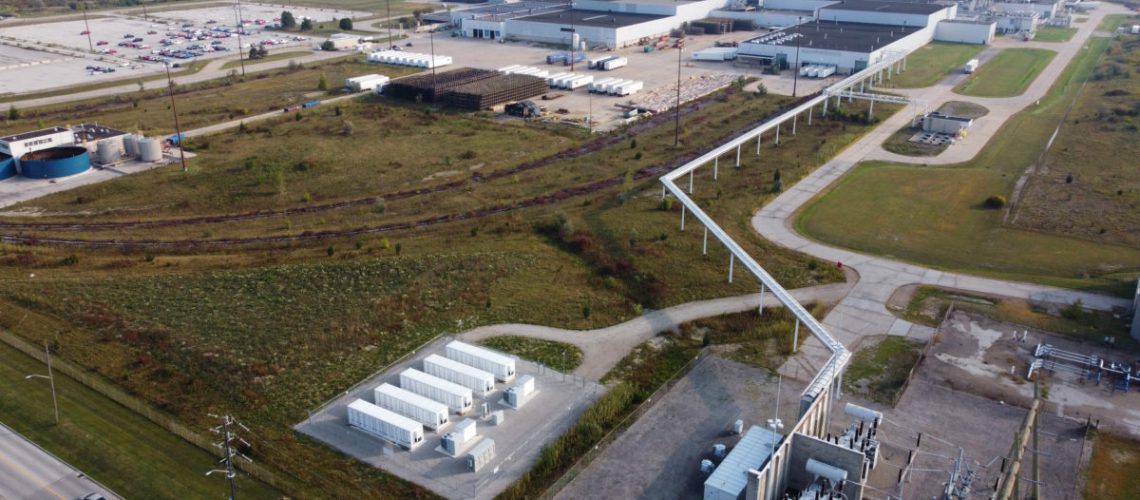AI-powered energy storage system helps Ford reduce energy costs while improving long-term sustainability on Ontario grid.
Auto maker Ford Motor is adding a 4 MW (8 MWh) lithium-ion battery storage project to its Midwest automotive assembly operations with a project developed in Windsor, Ontario at Ford’s Essex Engine Plant by Convergent Energy and Power, an Energy Capital Partners portfolio company which develops grid-scale energy storage projects.
The grid scale project marks Ford Motor’s further expansion into on-site energy storage generation following the May 2021 deployment of a battery storage system to power EV chargers at the Ford Research & Engineering Center in Dearborn, Michigan with an on-site PV generation of 1,127 MWh. The project represents the third distributed energy project announcement since Ford Motor’s August announcement that it will procure 650 MW of utility solar generation in Michigan from local utility DTE Energy, marking the largest commercial procurement of utility solar.
Ford Motor’s new Ontario standalone BESS project utilizes Convergent’s proprietary AI-based lithium-ion battery technology allowing the automotive manufacturer to lower its energy costs while providing grid resiliency solutions into the local Ontario grid.
Convergent spokeswoman Kate Siskel told this news publication that the energy storage developer has developed 40 MW of BESS projects in Ontario to date. Its project portfolio includes more than 500 MW of storage and solar projects under development.
“With our friends at Ford’s Essex Engine Plant, we’ve proven that our battery energy storage systems can lower commercial and industrial facilities’ utility bills,” said Convergent CEO Johannes Rittershausen.
According to the Ontario Energy Board, daily peak energy prices have risen to 15.1 cents per kWh today from under 10.5 cents per kWh in 2015. High energy prices has caused numerous commercial and industrial customers in the province to procure distributed energy resources such as solar and energy storage projects from regional developers.
Two years ago, Ford Motor Company announced its intention to achieve carbon neutrality globally by 2050, with interim targets set. The company will be able to attribute all its electricity supply in Michigan to clean energy. Ford is purchasing carbon-free electricity through DTE’s MIGreenPower program, which, to date, has more than 600 businesses enrolled, along with more than 62,000 residential customers.



